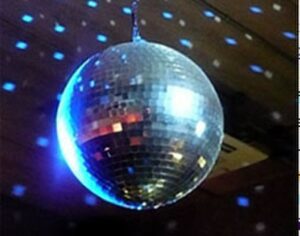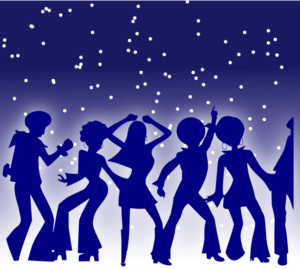I’m going to kick off by setting the stage for a phenomenon that reshaped the musical landscape: the ascent of 70s disco music in the UK. This isn’t just a story about catchy melodies and glossy outfits—it’s also a tale of cultural transformation, where beats became the heartbeat of a generation.
The UK embraced disco in the 70s as an infectious antidote to the daily grind. It originated from the US, sure, but the British scene carved its own identity, infusing rock and pop sensibilities with funk and soul grooves. These influences crafted a unique brand of disco that resonated with the vibrant UK crowds.
Key artists and groups like the the Bee Gees (Night Fever, Staying Alive), ABBA (Dancing Queen. Mama Mia), Donna Summer (I Feel Love, Hot Stuff), Gloria Gaynor (I Will Survive, I Am What I Am), Baccara (Yes Sir, I Can Boogie, Sorry I’m a Lady), The Jacksons (Blame It On The Boogie, Show You The Way To Go), Michael Jackson (Don’t Stop ‘Til You Get Enough, Off The Wall), Boney M. (Rivers Of Babylon, Belfast), Earth Wind & Fire (September, Boogie Wonderland), Chaka Khan (I’m Every Woman, I Feel For You), Chic (Everybody Dance, La Freak), KC and the Sunshine Band (Queen Of Clubs, That’s The Way(I Like It)

Thelma Houston (Don’t Leave Me This Way), Sister Sledge (He’s The Greatest Dancer, We Are Family), Sylvester (You Make Me Feel Mighty Real), The Trammps (Hold Back The Night, Disco Inferno), Barry White (You’re The First, The Last, My Everything, Let The Music Play), Diana Ross (Upside Down, My Old Piano), Kool & the Gang (Ladies Night, Celebration), Karl Douglas (Kung Foo Fighting) and the Village People (Y.M.C.A) ignited the UK disco movement with their pulsating anthems. From underground clubs to mainstream airwaves, their music got people on their feet.
But this revolution wasn’t confined to the dance floor. It symbolized a broader social evolution, where clubs became melting pots of diversity and acceptance. Iconic venues like the Wigan Casino not only showcased 70s disco music but also reflected the shifting tides of UK society.
As you delve deeper into the phenomena that 70s disco music created in the UK, you’re going to find out about the timeless tracks that compelled even the shyest wallflowers to dance. In the upcoming section, we’ll turn the spotlight on the beats and hits that became the soundtrack of a generation.
The Soundtrack of a Generation: Iconic 70s Disco Tracks
Now, I’m going to take you through the heart of the disco era by diving into the music that set the scene alight. 70s disco music wasn’t just about a catchy beat; it was a musical revolution that left footprints on the sands of time. UK artists and groups, with their eclectic styles, were right there at the fore, creating tracks that still get people grooving today.
From the infectious rhythm of ‘Le Freak’ by Chic to the powerful ‘I Will Survive’ by Gloria Gaynor, these tracks became much more than music; they were anthems of freedom and expression. UK dance floors were set ablaze with hits from home-grown talents like Heatwave, whose ‘Boogie Nights’ remains a timeless classic, and the rich, soulful melodies of ‘Young Hearts Run Free’ by Candi Staton enchanted listeners nationwide.
The Bee Gees with the soundtrack of Saturday Night Fever joined the disco scene.
Don’t forget the role of the UK’s music moguls, who had an ear for what would get people moving. They were instrumental in curating and promoting these beats, launching full-scale nightclub revolutions with the songs they pushed through the airwaves. Records spun by pioneer DJs fueled the palpable energy of the clubs, uniting diverse crowds under the glittering disco balls.
What’s particularly incredible is how 70s disco music bridged cultural and racial divides. Nightclubs became melting pots where the common language was the rhythm of disco beats. In a time when the UK, and the world, faced numerous social challenges, the liberating vibe of disco brought people together, initiating dialogues and friendships that transcended traditional social barriers.
The fusion of cultures, the rise of iconic bands, and the UK’s own twists on the classic disco sound showcased the unique contributions to the genre. As you keep reading, you’re going to find out how this influential period didn’t just shape the nightlife but also had a far-reaching impact on fashion, lifestyle, and societal norms in the UK, creating a disco-infused tapestry that’s still admired today.
Beyond the Music: 70s Disco Fashion and Lifestyle
The flamboyant fashion that came hand in hand with 70s disco music wasn’t just about flashy colours and glitter. It was a bold statement of self-expression and freedom. The UK wasn’t just absorbing these trends; it was reinventing them, adding a British twist to platform shoes and satin trousers.
I’m going to show you how 70s disco wasn’t just a music genre; it was a cultural phenomenon that left a lasting impact on the UK’s fashion industry. The era’s hallmark fashion choices—wide-collar shirts, bell-bottoms, and sequined attire—have all had resurgences in recent years.
In the UK, disco went beyond just the nightclubs; it was a presence on television shows, in films, and even influenced the way people decorated their homes. Disco was everywhere, embedding itself into the very fabric of day-to-day life. And today’s fashion designers still pay homage to the era with disco-inspired collections.
You might think the disco era’s influence would’ve faded by now, but that’s far from true. Museums, exhibitions, and fashion retrospectives often celebrate the unique aesthetic of the 70s, ensuring it remains alive and kicking. This brings us to how the legacy of disco continues to be influential in the contemporary era.
Legacy and Revival: The Enduring Appeal of 70s Disco Music
I’m going to take you through a trip down memory lane to appreciate the timeless groove of 70s disco music. This isn’t just about nostalgia; it’s a testimony to the genre’s profound influence on today’s music landscape. From the infectious rhythms to the glittering disco balls, the spirit of the 70s UK disco scene is long-standing.
70s disco music did more than just get people moving—it spawned entire new genres. House and techno owe a debt to disco’s four-on-the-floor beat, while modern pop and electronic often take inspiration from its synthesizer sounds and bass grooves. This goes to show the genre’s foundation-laying role for contemporary music.
In my opinion, the revival of disco in popular culture is no coincidence. Artists and DJs are sampling classic disco tracks, bringing a touch of that iconic era to the 21st century. They recognize that those bass lines and melodies aren’t just hallmarks of the 70s—they’re timeless pieces of art.
The nostalgic factor is powerful, with vinyl records of 70s hits being unearthed and events themed around disco drawing crowds who either lived through the era or simply crave its vibrant energy. Choose something that resonates with you—be it the fashion, the music, or the lifestyle—and you’ll find that disco never really left.
Across the UK, annual events and clubs dedicate nights to the pure joy that is 70s disco music. You can always adjust your dancing shoes and hit a club that celebrates this era, proving that the love for disco music is as alive today as it was back in the day.
So my question to you today is, have you found your disco rhythm yet? If not, it’s never too late to explore and appreciate the beats that once electrified the UK and continue to influence the world. Because remember, your first attempt at the disco shuffle doesn’t need to be your last—70s disco music is here to stay, inviting everyone to the dance floor.
Enjoyed this post?
If you love 70s music, I’ve put together a free A–Z guide covering artists and their songs from the decade. It’s a simple reference you can keep handy instead of searching online every time.
👉 Download your free copy here.
Music of the Decades
Celebrating the music of the 1970s.
You can also visit the Music of the Decades Etsy shop for vintage music from the 70s and 80s.
Frank



